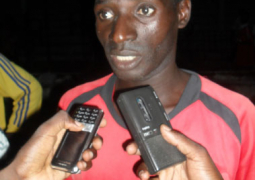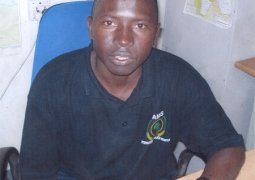The West African Network for Peace Building
(WANEP) The Gambia in collaboration with the Unite Nations Human Rights (UNHR)
Commission and Article 19 concluded a two-day training of women in political
participation.
The training course was held at the
Paradise Suites Hotel, aimed at providing the potential candidates with the
rare opportunity to retrace the steps of Gambian women, from colonialism to date,
who were not only the foundation for women’s participation in the political
process, but paved the way for the women of today to play a part in politics
and decision-making.
Speaking on the occasion, Nancy A. Niang,
permanent secretary at the Ministry of Women’s Affairs, thanked WANEP Gambia
and its partners for organising such a forum, noting that it is timely, as
women’s participation in politics is very important in any country.
Ms Niang emphasised on the need for women
to participate in politics, saying it was not uncommon to learn of a handful of
women, that are represented or nominated to serve in positions of
decision-making at the national level, to often render the process legitimate
and inclusive.
In her welcoming remarks, Anna Jones,
National Network Coordinator, WANEP The Gambia, expressed gratitude to the
participants, saying the women represent more than half of the country’s
population.
She added that women’s full participation
in political and electoral processes has its origins in the principles of
non-discrimination, and equal enjoyment of political rights enshrined in
Universal Declaration of Human Rights (UDHR) adopted in 1948.
Mrs Jones further noted that much progress
has been made in The Gambia to advance the plight of women, and to recognize
the important role women could play in decision-making.
She expressed hope that the two-day
training course would be beneficial to all women, and increase their winning
chances.
She advocated to all party selection
committees to be gender sensitive in their composition and selection process,
without which the participation of women would still need to face their
respective party selection committees.
The UN Resident Coordinator in The Gambia,
Ms Ade Mamonyane Lekoetje, thanked WANEP and their partners for organising the
training course, saying encouraging and advocating for women’s participation in
public and political life are key in the UN’s work on women’s empowerment.
In the The Gambia, women remain
under-represented as political leaders and elected officials, she said, adding
that the percentage of women in the National Assembly is below 10%, which is
still well below the 30 percent target of the African Union.
Mrs Fatou Jagne Senghor, regional Director
Article 19, also joined the previous speakers to emphasis more on the need for
women’s participation in politics, noting that it is key in any developing
country.



